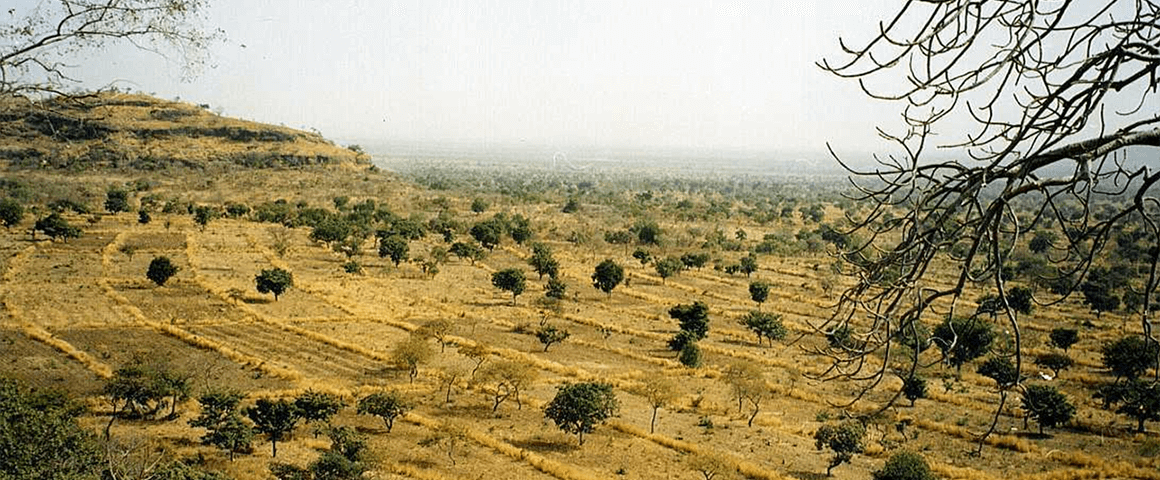- Home
- Worldwide
- CIRAD worldwide
- Projects
- Projet RESINOC
Strengthen agricultural innovation systems to promote agro-sylvo-pastoral production systems that are economically profitable, ecologically sustainable and socially equitable in the North region of Cameroon - RESINOC

Managed agricultural land south of Garoua © CIRAD
Issues
In the North of Cameroon, livestock, crops and protected areas share the same territory of 65,000 km2. There are three national parks and 28 hunting zones that occupy around 45% of the total area of the North region. The major challenge of the agricultural sector is to secure access to land while preserving a sustainable and balanced use of natural resources. The RESINOC project operates in the corridor between Garoua and the Adamawa plateau in the North region of Cameroon, which comprises:
- A highly populated zone south of Garoua that is highly degraded, where the promotion of agroecological and climate-smart practices is required, as well as better integration of crops and livestock;
- Zones bordering on the national parks and hunting zones, with a great deal of tension and disputes over access to land and natural resources. Here, institutional and organizational innovations are needed for land-use planning in the territory;
- Some more recent cotton and food products et producing areas (south-east of Bénoué, between Bouba-Ndjida and Touboro), where there is an obvious move to clear natural tree savannah to establish new farms. Here, both agroecological practices (soil fertility improvement) and land use planning would help to preserve the remaining tree savannah, while sustaining the production of cotton and food crops, and cattle farming.
Description
The project will be implemented in three consecutive steps:
- A diagnosis of population dynamics, subsistence activities, impact on natural resources, evolution of climate and impact on practices, as well as an in-depth institutional analysis of existing agricultural innovation systems;
- Establishment of innovation platforms (or other similar set-ups) bringing together the stakeholders involved at landscape and value chain levels;
- Testing, adaptation and dissemination of technical, organizational and social innovations, taking a participatory approach.
During the first phase of the project (years 1 and 2), three pilot sites will be chosen per theme with a view to fine-tuning the approach and developing best-fit models. These models will then be applied/adapted on a larger scale in the second phase (years 3 and 4), associating all the stakeholders and in collaboration with other ongoing projects and programmes.
Expected changes
The project aims to improve the livelihoods of populations in the North region of Cameroon through harmonious management of landscapes enabling the integration of crops and livestock.
The objective of the DeSIRA initiative (Development Smart Innovation through Research in Agriculture, is to contribute to climate-relevant, productive and sustainable transformation of agriculture and food systems in low and middle-income countries.
Learn more
























